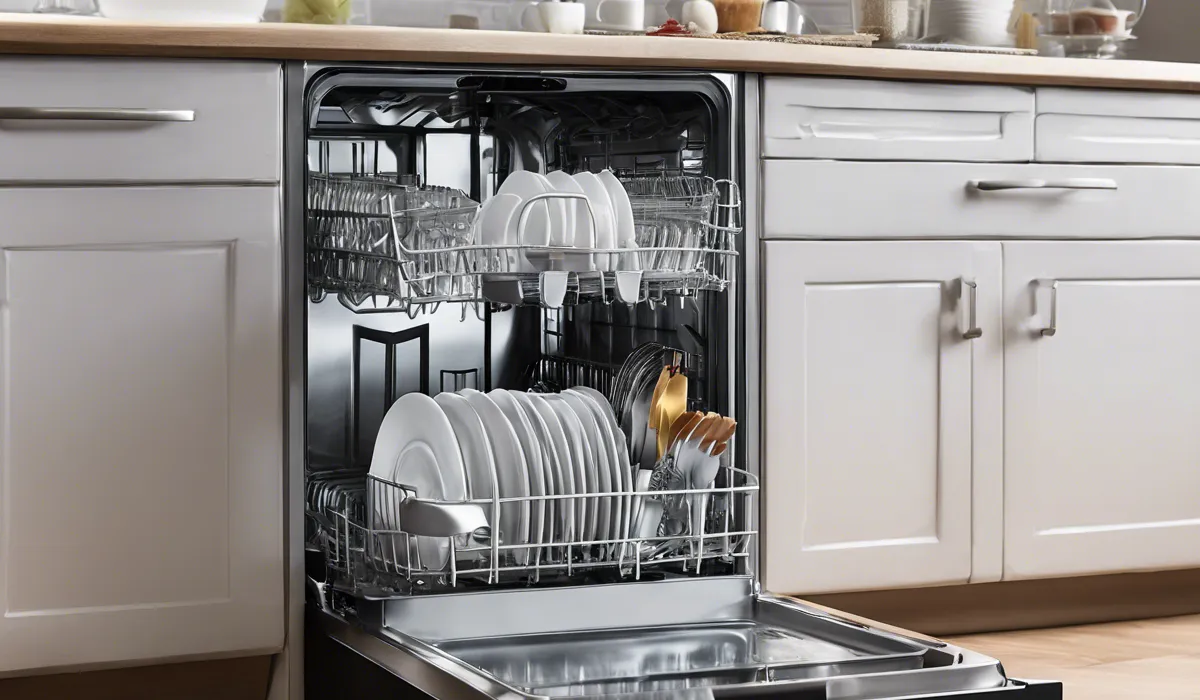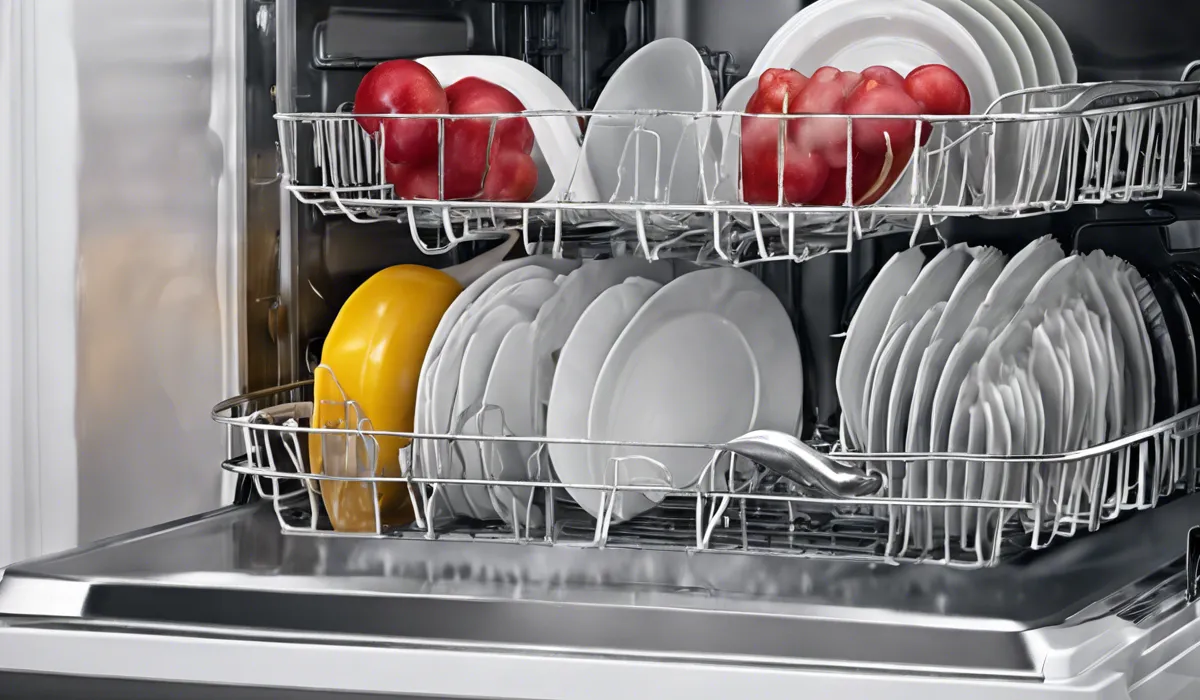Can You Run Dishwasher in Freezing Weather? Risk vs Reward!
Running a dishwasher in freezing weather can lead to frozen pipes and potential damage. Ensure your home and appliance are well-insulated. If temperatures drop significantly, it’s safer to avoid using the dishwasher until conditions improve.
Risks of Running a Dishwasher in Freezing Weather

Potential for Water Lines to Freeze
When temperatures plummet, the water in your pipes can freeze. This includes the lines leading to your dishwasher. Frozen water expands, putting pressure on pipes which can cause them to burst.
A burst pipe leads to water damage in your home and the need for costly repairs.
Impact on Dishwasher Performance
Freezing weather can also affect your dishwasher’s efficiency. If the water entering the dishwasher is too cold, it won’t clean dishes properly.
This might lead to running extra cycles, wasting water and energy. Moreover, detergent doesn’t dissolve as well in cold water, leaving residue on your dishes.
Risk of Damage to Pipes and the Appliance
Not only can your water lines suffer in freezing weather, but the mechanical parts of your dishwasher can too.
If water inside the appliance freezes, it can damage the pump and other vital components, leading to expensive repairs or even the need for a replacement.
Possible Solutions for Prevention
Preventive measures can mitigate the risks of running your dishwasher in freezing weather.
Insulate water lines and consider installing a home water leak detection system to alert you to potential issues.
Keep an eye on the forecast and take action when a freeze is expected, much like you would prepare your fishing gear with the right 2500 reel size before heading out to fish in challenging conditions.
Precautionary Measures to Take Before Running a Dishwasher in Cold Weather

Insulating Pipes and the Appliance
Insulating your pipes is like wrapping up in a warm coat during winter. It keeps the water inside from freezing. You can use foam pipe insulation, which is easy to install. Don’t forget to insulate the pipes leading to the dishwasher to protect them from the cold.
Keeping the Kitchen and Home Heated
Maintaining a warm temperature in your home is crucial. It helps prevent the freezing of pipes hidden in walls and cabinets.
Set your thermostat to a consistent temperature day and night, and open cabinet doors under the sink to let warm air circulate around the pipes, similar to how you’d ventilate a ceiling box to prevent overheating.
Running Hot Water Before Starting the Dishwasher
Before you start your dishwasher, run the hot water tap in your kitchen sink. This will help bring hot water to the appliance right away, reducing the risk of having cold water fill the dishwasher.
It’s like letting your car warm up on a frosty morning before driving off.
Ensuring Proper Maintenance of the Dishwasher
Regular maintenance of your dishwasher helps it run efficiently and can prevent problems in cold weather.
This includes checking the door seals, filters, and spray arms. Think of it as tightening the toilet flange bolts; a small action can prevent larger issues.
Alternatives to Using a Dishwasher During Freezing Conditions

Hand Washing Dishes
If the weather is too severe, consider hand washing your dishes. It can be more water-efficient if done correctly and eliminates the risks associated with running your dishwasher in freezing conditions.
Delaying Dishwashing Until Weather Improves
Another option is to wait until the temperature rises before using your dishwasher. Pile up the dishes in the sink or use a basin to soak them until it’s safe to run the dishwasher without the risk of freezing.
Using Disposable Dinnerware
Using disposable plates, cups, and utensils can reduce the need for washing dishes during freezing weather. It’s not the most environmentally friendly option, but it can be a temporary solution to avoid plumbing issues.
Planning Meals That Require Minimal Dish Usage
Meal planning can also help. Choose recipes that require fewer pots and pans. One-pot meals, for example, minimize the number of dishes you’ll need to wash, reducing your need to use the dishwasher during cold snaps.
FAQs About Running a Dishwasher in Freezing Weather
Can I run my dishwasher when it’s freezing outside?
It’s not recommended to run your dishwasher in freezing conditions as it can cause the pipes to freeze and potentially lead to damage.
What precautions should I take if I need to use my dishwasher in cold weather?
Ensure your home and the appliance are well-insulated, and consider using the dishwasher only during the warmest part of the day to reduce the risk of freezing.
What are the risks of running a dishwasher in freezing temperatures?
Running a dishwasher in freezing temperatures can lead to water in the pipes freezing, which might cause the pipes to burst and result in water damage.
How can I tell if my dishwasher pipes are frozen?
If water does not enter the dishwasher or there are unusual noises during a cycle, it could indicate that the pipes are frozen.
What should I do if my dishwasher pipes freeze?
Immediately stop using the dishwasher, turn off the water supply, and seek professional help to safely thaw the pipes and avoid damage.
Final Thoughts
Running a dishwasher during freezing weather poses a risk of frozen pipes and subsequent damage.
Proper insulation of your home and appliances is essential. In extreme cold, it’s advisable to refrain from using the dishwasher to prevent potential issues. Monitoring and adapting to the weather conditions is key for safe appliance use.




